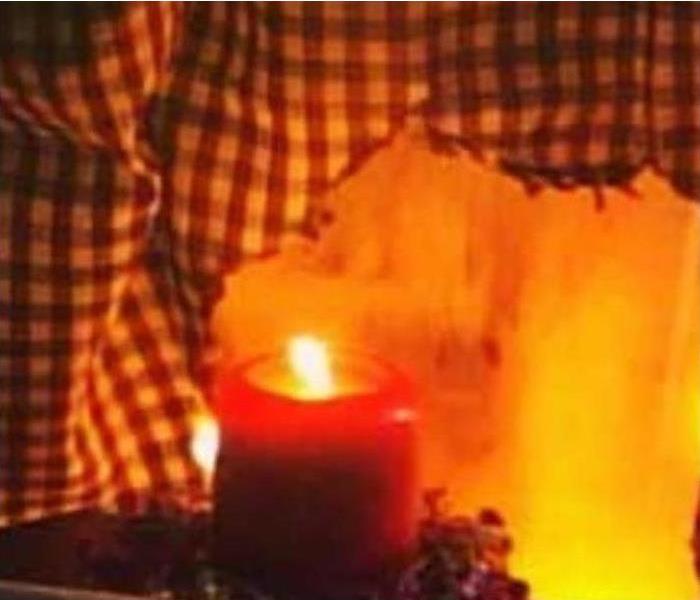Fire Prevention and Safety Information
6/21/2022 (Permalink)
 A lit candle and readily combustible materials, such as cloth, paper, and (certain) plastics are not good mixes and can lead to dire consequences.
A lit candle and readily combustible materials, such as cloth, paper, and (certain) plastics are not good mixes and can lead to dire consequences.
Kitchen Fire While Cooking
- Never use water on a grease fire! Salt or baking soda can be used to extinguish a fire. Also, smother a fire in a pan by putting a lid on it.
- Do not leave food cooking unattended.
- Pay special attention to hot grease or oil.
- Always supervise children.
- Keep a fire extinguisher nearby and ensure that it shows “A, B, or C.”
Wood, Coal, and Pellet Stoves or Fireplace Inserts
- Ensure that your stove or insert has a “UL” label on it.
- Ensure that your stove was installed properly by a contractor according to NFPA standards for proper clearances, floor covering, wall covering, flue, and chimney.
- Ensure that your chimney is cleaned regularly especially at the beginning of the season.
- Never use homemade stoves, which are a common cause of fires.
- Do not install or use stoves in a garage, because they can contact combustible materials more readily.
Candles and Potpourri Burners
- Burn candles and potpourri only when you are in the room.
- Keep open flames away from curtains and other combustible materials.
Outside Burning and Bonfires
- Do not start open fires when ground and surrounding vegetation is dry.
- Do not burn when winds are stronger than a gentle breeze.
- Always have a strong water source ready in case a fire begins to get out of control.
- Stay with the fire at all times.
- Rake through the ashes to ensure that all coals are cooled when finished.
Other Considerations
- Ensure that all outside antennas are properly grounded.
- Install lightning rods to reduce the possibility of fire by lightning strike.
- Ensure that your home’s wiring is updated and adequate to handle electrical loads.
- Do not overload circuits. Breakers trip and fuses blow when overloaded.
- If you have an older heating system, then get it checked by a professional for safety.







 24/7 Emergency Service
24/7 Emergency Service